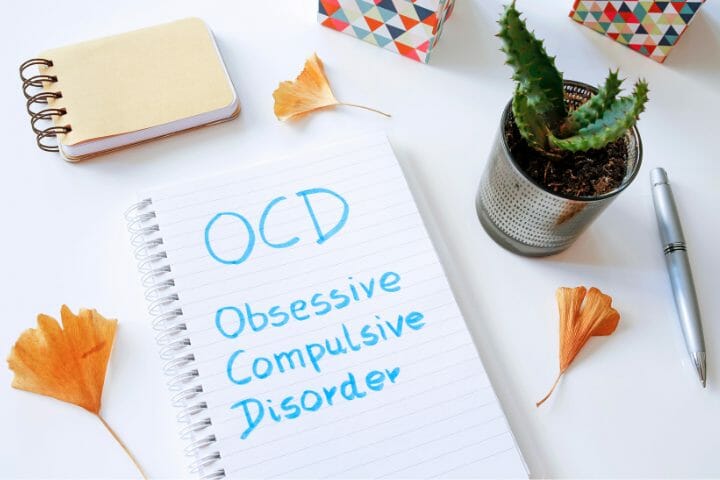Are you suffering from obsessive compulsive disorder? Can you get disability for OCD? If it is impacting your quality of life, your ability to work and maintain healthy relationships, then yes, you might be able to get it. Read on to find out how.
Contents
When people think of disability, they think of conditions that visibly impact a person’s ability to function. But what many don’t know is that several mental health conditions can also qualify someone for disability benefits.
One such condition is OCD or obsessive-compulsive disorder. If you’re struggling with OCD and your quality of life has been impacted, you may be wondering if you could get a disability for OCD. This article will discuss how OCD qualifies for disability and what the process entails.

Is OCD A Disability?
OCD is a type of anxiety disorder that affects millions of people worldwide. It can range from mild to debilitating, and for some people, it can be so severe that it is classified as a disability.
There are several types of OCD that affect people to varying degrees. These include obsessions, compulsions, and hoarding.
- Obsessions are uncontrollable thoughts or impulses that are intrusive and cause distress or anxiety.
- Compulsions are behaviors or mental acts that a person feels driven to perform to lessen their anxiety or distress related to their obsessions.
- Hoarding refers to those who excessively collect items without necessarily using them and whose collections interfere with their living space’s ability to be commonly used.
Can OCD be treated?
OCD can be treated with a combination of medication and therapy. In some cases, hospitalization may be necessary to provide intensive treatment. The goal of therapy is to help the person manage their OCD so that it does not severely interfere with their life.

How severity impacts its classification as a disability
So, is OCD considered a disability? The answer to this question depends on the type and severity of OCD that a person has. Generally speaking, severe or debilitating cases of OCD can be classified as disabilities.
However, milder cases of OCD may not qualify for such an assessment. This is because the obsessions and compulsions associated with these types of OCD can cause significant impairment in someone’s ability to function normally or participate fully in society.
Despite this variability, one clear thing is that OCD can be complicated to live with and requires care and support from others. If you are suffering from OCD or know someone who does, help is available through therapy, medications, and other treatments.
Working together with your doctor or mental health professional makes it possible to manage your OCD and live a whole and satisfying life.
You might also like to read: Why Do People Become Hoarders?
What Are The Four Types Of OCD?
There are four primary types of OCD: washing and cleaning, checking, ordering and symmetry, and hoarding. People with OCD may experience symptoms from one or more of these categories.
Washing and cleaning compulsions are often associated with a fear of contamination. People with this type of OCD may obsessively wash their hands, clean their homes, or avoid contact with perceived contaminants.
A fear of harm or mistake drives checking compulsions. People with this type of OCD may repeatedly check doors and windows to ensure they are locked or check appliances to ensure they are turned off.
Ordering and symmetry compulsions are characterized by a need for things to be in a particular order or arrangement. People with this type of OCD may refuse to leave the house unless their shoes are lined up in a specific way.
Lastly, hoarding compulsions are associated with a fear of losing or discarding sentimental objects. People with this type of OCD may hold onto garbage or unusable items beyond the point that they could be considered useful.
While the symptoms and triggers vary from individual to individual, those diagnosed with OCD often struggle with intense anxiety and feel consumed by intrusive thoughts. If you suspect that you may be experiencing symptoms of OCD, speak to your healthcare provider for help managing these distressing thoughts and impulses.

Is OCD Considered A Mental Disability?
Yes, OCD, also known as obsessive-compulsive disorder, is considered a mental disability because it affects how the brain responds to certain things. This can cause people with OCD to have obsessive thoughts or repetitive behaviors.
While there is no cure for OCD at this time, there are treatment options that can help control symptoms and make life more manageable. These treatments may include therapy, medication, or a combination of both. Overall, having OCD does not mean that someone
cannot live a fully active and successful life.
With proper support and care, most people with OCD can manage their condition and lead fulfilling lives.
If you or someone you love has been diagnosed with OCD, it’s essential to seek professional support to ensure the best possible outcome.
There are many resources available to help people understand and manage their condition. People with OCD can lead happy and successful lives with the proper support.
You might also like to read: Age And Mental Health- All You Need To Know
Is OCD A Mental Handicap?
There is much debate surrounding the topic of OCD and whether or not it classifies as a mental handicap. While there is no clear answer, it is essential to consider the various factors contributing to this complex question.
For starters, it is essential to understand what OCD is. OCD is short for Obsessive-Compulsive Disorder, classified as an anxiety disorder. Individuals with OCD experience persistent and intrusive thoughts, often referred to as obsessions.
To relieve the anxiety caused by these obsessions, individuals engage in repetitive behaviors known as compulsions.

Compulsions are often specific and ritualistic, such as excessive hand-washing or counting. However, they can also take on more general forms, like excessive cleaning, checking, and repeating actions.
Can You Get Disability For OCD?
Yes, you can get a disability for OCD. The Social Security Administration (SSA) considers OCD a mental disorder that can significantly impair your ability to function in daily life.
If your OCD is severe enough to meet the SSA’s criteria, you may be eligible for or Supplemental Security Income (SSI) or Social Security Disability Insurance (SSDI).
To qualify for disability benefits, you must first have worked long enough and paid Social Security taxes. If you meet these requirements, the SSA will consider whether your OCD is severe enough to prevent you from working.
The SSA looks at some factors when determining whether your OCD is severe, including how much it interferes with your daily activities and how well you respond to treatment. If the SSA finds that your OCD is severe and meets specific other criteria, you may be eligible for disability benefits.
If you think you qualify for disability benefits due to your OCD, you should contact the SSA to learn more about the application process. You can also consult with a qualified disability attorney to discuss your case and make sure you are meeting all of the SSA’s requirements.
Are There Any Benefits To Having OCD?
OCD is a mental health condition that can significantly impact your life. People with OCD often experience intrusive thoughts and compulsive behaviors that are difficult to manage.
Although the symptoms of OCD can be severe, there are some benefits to having this disorder as well. If you’re struggling with OCD, it’s important to remember that you aren’t alone, and there are resources available to help you manage your symptoms effectively.
Some of the main benefits of having OCD include developing more vital problem-solving skills and gaining an enhanced sense of empathy towards others. Having OCD may also make you more detail-oriented, improving your performance in specific fields.
Additionally, people with OCD often have a higher level of self-awareness, which can help them identify and manage their symptoms more effectively.
You might also like to read: Caregiver’s Guide to Reduce Anxiety for Seniors
How Can OCD Impact Your Life?
- People with OCD can become highly anxious and stressed out, leading to several physical health problems.
- OCD can interfere with work, school, and personal relationships.
- People with OCD may be reluctant to seek treatment because they are embarrassed or ashamed of their symptoms.
- OCD can be very time-consuming and disruptive to everyday life.
- The compulsions associated with OCD can be costly, both money and time.
- Some people with OCD may turn to alcohol or drugs to cope with their anxiety, leading to addiction problems.
- People with OCD may be at risk for suicide because of the severe anxiety and stress that their disorder can cause.

What Are The Treatments Available For OCD?
If you’re struggling with OCD, you may wonder how to remove it permanently. While there is no single cure for obsessive-compulsive disorder, many different strategies and treatments can help you manage your symptoms and learn to cope with your thoughts and worries.
One common approach used in treating OCD is cognitive-behavioral therapy (CBT). CBT is effective in helping people overcome their OCD symptoms, both on its own and when combined with medication.
This type of therapy involves working with a mental health professional to identify the thought patterns and behaviors contributing to your OCD symptoms and then learning new ways of changing your thinking or behavior to lessen those symptoms over time.
Other treatment options for OCD include medications like antidepressants, which can help regulate the chemicals in your brain that may contribute to your OCD symptoms. Some people find that a combination of medication and therapy is most effective in treating their OCD.
Wrap Up
1 in 100 adults have Obsessive Complusive Disorders. That means that there is a large chunk of people out there who might be having difficulty leading normal lives and maintaining their professional as well as personal lives due to it.
Such people might need a lot of help in order to live a normal life, and one of the main things that they may need is money for treatment and maintaining themselves. We hope this article has been able to give you the right information to help you understand how you can claim disability for OCD and what you need to do for it.
Thank you for reading!
